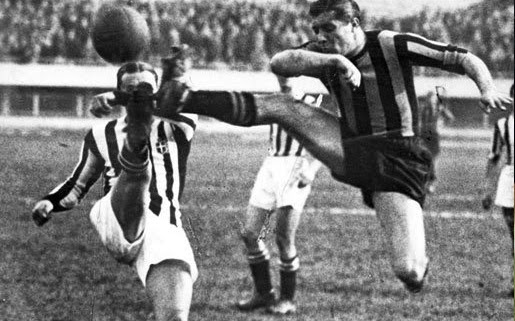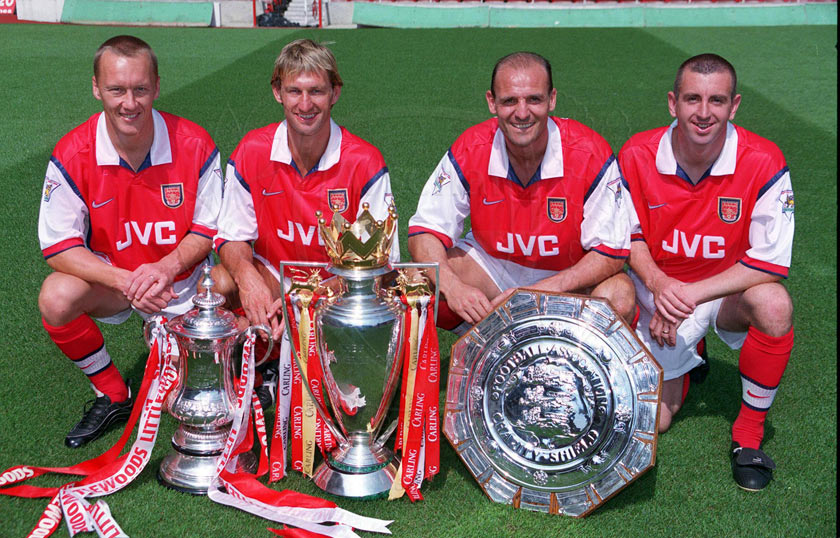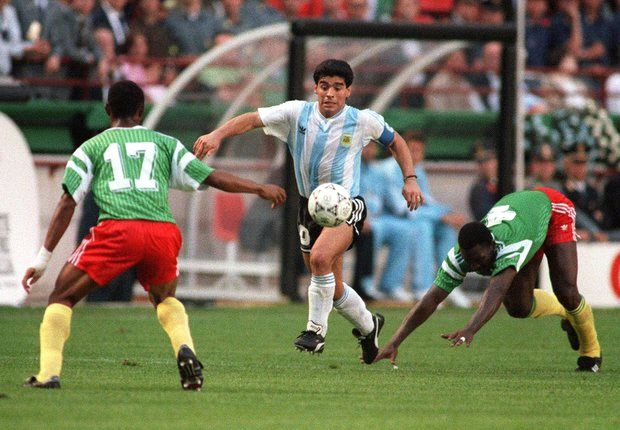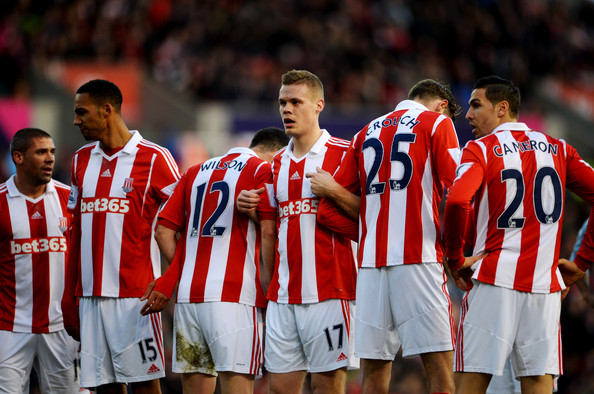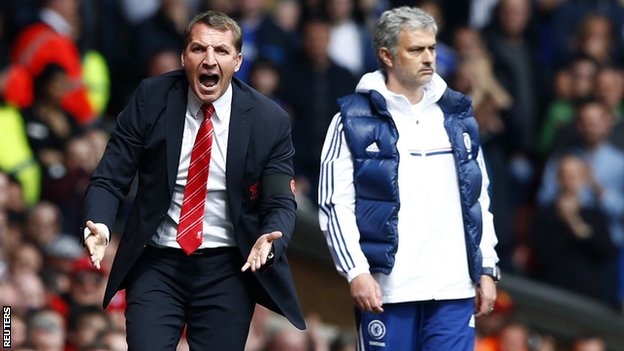Top 5 Ultra Defensive, "Anti-Football" Sides Of All Time
Ultra defensive tactics by Chelsea in a Liverpool match on 27 April 2014 have frustrated many sides. Here are 5 football teams that have employed similar "anti-football" tactics with much success.
1. Inter Milan (1960s)
Inter's side in the 1960s were the most successful to use the Catenaccio style - which means 'bolted door' in Italian. Grabbing a goal or two on the counterattack was the name of the game, leaving opposition forwards frustrated with the cautious defenders surrounding them.
Catenaccio or The Chain is a tactical system in football with a strong emphasis on defence. In Italian, catenaccio means "door-bolt", which implies a highly organised and effective backline defence focused on nullifying opponents' attacks and preventing goal-scoring opportunities.
Inter Milan went through their most successful era in 1960 having won 2 European titles pluss 3 league titles but that was all down to their counter attacking football.
tsmplug.comIconic Inter coach Helenio Herrera guided his Nerazzurri ranks to two European Cups and three Serie A titles with the system - world class defenders such as Giacinto Facchetti, Tarcisio Burgnich and Armando Picchi ensuring misery for all opposition attackers.
2. Greece (2004)
Greece managed to win Euro 2004 despite lacking technical skills and flair other teams have
Image via goal.comProbably the greatest underdog story in football, when Greece beat all odds to win the European Championship 2004 in Portugal. Greece coach Otto Rehhagel played his team out in such a defensive strategy that they became so hard to penetrate. They only commit players in opposing half on corners and that is where most of their goals came from.
tsmplug.comOtto Rehhagel realised his team were far from the best in the tournament, and he had no flair players to rely on, so he carved out a formidable defensive plan which saw them play patiently (or painfully, for the attack-loving neutral) and only commit men forward for corners and set-pieces.
Greece might not have set the continent alight with their style but, as Rehhagel himself put it: "People tell me my tactics are not modern, but modern football is about winning."
3. Arsenal (1992-1995)
Arsenal's famous back four which formed the backbone of Arsenal's defensive tactics
Image via onfootball.co.ukThe chant "boring, boring Arsenal" became synonymous with the Gunners in the early 1990s thanks to George Graham's intent on grinding out results whether they had goals in them or not. Graham took charge of the north Londoners in 1986 but it was not until 1992 that he threw his attacking plans in the bin.
Graham's first 6 seasons in English top flight averaged more than 60 goals a season but with the start of 1992-1993 season he started to build his team on strong defence which meant they would only score around 40 goals a season from 1992 to 1995.
tsmplug.comGraham changed his tactics; he became more defensive and turned out far less attack-minded sides, which depended mainly on goals from Wright rather than the whole team.
Graham's famous offside-playing back four of Lee Dixon, Tony Adams, Steve Bould and Nigel Winterburn is regarded as one of the best backlines English domestic football has ever seen.
With such a tight backline, and midfielders like Rocastle and Thomas shielding them, Arsenal rapidly became a force that won the league three years after Graham became manager. The best things in football, which appear the most simple, are often the most difficult to accomplish, and George’s defensive wall was solidified by sheer sweat and blood on the training ground.
arsenalinsider.com4. Argentina (1990)
World Cup 1990 saw just 2.21 goals per match - the lowest in the history of the tournament - which goes some way to explaining how Argentina reached the final despite scoring less than once a game.
The most appalling and successful exponents of Italia 90's dismal signature football were holders Argentina. Deploying the game's first recognised 10-0-0 formation, they tortured the world by advancing all the way to the Final despite making only two forays into the opposition's half in the entire competition.
Argentina, led on the sidelines by Carlos Bilardo, scored just five goals in seven games. They defeated Brazil 1-0 in the second round despite being outplayed from start to finish and then progressed via penalties in the next two matches versus Yugoslavia and hosts Italy. It took West Germany until the 85th minute to score in the final and put the anti-attackers to the sword.
5. Stoke City (2008-2013)
Tony Pulis installed a defensive and direct football tactical gameplay to his Stoke City who became a solid Premier League side who never got threatened by the relegation since their promotion in 2008.
tsmplug.comIt took Stoke City 116 Premier League games to record possession statistics of over 50 per cent in a Premier League match following promotion in 2008 - a baffling statistic considering they had never really been threatened by relegation.
Only once in Pulis' five full seasons in charge of the Potters did they score more goals in the league than games played and eventually the fanbase and club craved more creativity, leading to his departure last summer.
Stoke’s success is based on each player knowing their role in the system, while the manager offers constant reminders as he barks instructions from the touchline. ‘We spend a lot of time on our system,’ said Pulis. ‘And if the players don’t, they don’t play.’ Simple.
dailymail.co.ukWhat Is Anti-Football?
"Anti-football" is a lethargic passing style of football that relies only on passing and an extremely defensive, aggressive physical, robust style of play of football where one team deploys their whole team, except the striker, behind the ball.
It is also used to criticize the playing style of teams who prevent the game from moving on with actions such as: shooting the ball forward without trying to reach any players, intentionally diving and stopping the play during several minutes or shooting the ball away when a free-kick is awarded, to win time.
On April 27th, Chelsea Came Under Criticism From Brendan Rodgers For 'Parking The Bus' Against Liverpool
Rodgers disagreed with Mourinho's defensive tactics which resulted in a frustrating day for Liverpool
Image via bbcimg.co.ukRodgers was unimpressed by the defensive tactics employed by his old mentor and also disagreed with Mourinho's claim that Chelsea were the better team.
Brendan Rodgers accused Jose Mourinho of parking "two buses" after seeing his Liverpool side frustrated by a trademark display of defensive resilience from Chelsea at Anfield.
Mourinho, however, remained bullish about his team's performance, insisting they deserved to win and challenging the assertion that his tactics were defensive. "The best team won," he told reporters. "The team that deserved to win won. "Defensive display? I am confused what the media thinks about defensive displays. When a team defends well you call it defensive."
